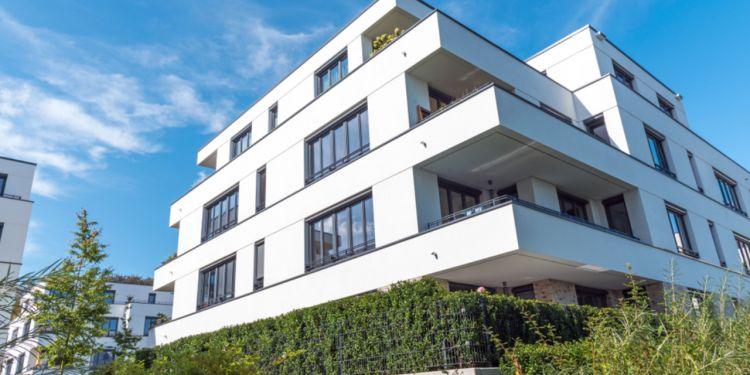Despite the COVID-19-induced economic crisis and thanks to the government's and central bank's relief measures, the German real estate market has bounced back stronger, meaning that prices are on the rise, demand is high, and purchases are booming. At the same time, a lot of attention is paid to properties' sustainability. For example, many German states require the installation of photovoltaic and solar panels on new buildings — legislation that is expected to apply on a federal level soon. When we talk about real estate investment, Berlin, Frankfurt, Stuttgart, and Hamburg are some of the cities that attract the most attention among buyers. According to data from Empirica Regio, a trend that has been noticed lately suggests that the average German home size has increased by 20 percent since 1990, meaning that Germans prefer to live in more spacious homes. For example, the average space per person in Stuttgart is 37 sqm, whereas in Cologne and Berlin, it is 38.9 sqm. German apartments are usually rented unfurnished, without kitchen appliances. In most cases, the rent, payable on a monthly basis, does not include gas or electricity bills. However, it may include water, heating, and maintenance fees. Thus, Warmmiete includes costs such as water, property tax, gas, electricity, and waste disposal services, whereas Kaltmiete doesn't. The price difference between Warmmiete and Kaltmiete is called Nebenkosten. It is important to research the average Nebenkosten in your city to not allow the owner of the house to overcharge you. Finding accommodation in Germany can be a challenge because the demand is always higher than the offer. Regarding rent prices, you should keep in mind that rent is the single biggest expense you will have, and therefore you should be prepared to spend some time researching your options. As far as the rental market is concerned, Munich is by far the most expensive city in Germany concerning renting and the overall cost of living. Just after it comes Frankfurt and Stuttgart, followed by Dusseldorf and Hamburg. By contrast, rent prices in Berlin and eastern Germany are much more affordable. To find accommodation in Germany, you can start by doing online searches and talking to expats in Germany, many of whom are in Expat.com's Germany Forum. If you want an expert's help, you can consult with a real estate agent, which is, of course, going to lead to some extra costs. Students usually opt for shared flats (Wohngemeinschaft or WG), whereas young professionals find a balance between living independently at a lower cost in studio flats. To rent a house in Germany, you will have to pay a security deposit, which is stated in the contract, and by law, it shouldn't exceed the value of three months' rent. Overall, everything you discuss with the owner of the house must also be clearly stated in the rental agreement, which you should check carefully before signing. Also, before signing, it is advisable to visit the place a couple of times and at least one time during daylight. An exhaustive inventory must be done, especially if the house is furnished. Make sure to take pictures of any defects you notice to prevent deductions from your deposit. The owner may also require proof of your financial statements and proof of employment and even ask for a recommendation letter from the owner of your previous home. In general, there are no fixed-term leases in Germany, though a minimum period of occupation of one or two years may be required. Termination notice is for two to three months. In case your rental agreement requires you to have a minimum period of occupation, but if you have to leave Germany before, you will be legally bound to your lease until the minimum occupation period ends. In other words, you will have to pay rent and maintenance fees until the termination of the required minimum period term. However, you may be able to negotiate with the owner to help find a new tenant to replace you. technical advisors should inspect the site and obtain necessary information from authorities to make sure all permits, environmental conditions, and architectural requirements are met.
XEN Crypto Airdrop
Free Airdrops |
2023-01-20 05:54:51






